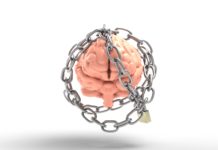What is Contributory Injustice in Psychiatry?
An article on contributory injustice describes the clinical and ethical imperative that clinicians listen to service users experiences.
Researchers Push Back Against Recommendation to Combine Antidepressants for Suicide Prevention
Researchers challenge the recommendation of starting two antidepressants simultaneously to increase preventative effects against suicide.
Researchers Highlight Pitfalls of Cognitive Assessment in Schools
Historical, current, and potential future complexities of cognitive assessment; a longstanding, controversial fixture in schools throughout the United States.
Why We’re Establishing an Institute for Scientific Freedom
Scientific freedom and integrity are constantly under attack, particularly in healthcare, which is dominated by the drug industry and other economic interests. To help preserve honesty and integrity in science, the new Institute for Scientific Freedom will open on March 9 with an international meeting in Copenhagen.
Antipsychotics Associated with High Risk of Death in Children
A new study has found that children and adolescents taking a high dose of antipsychotics are almost twice as likely to die of any cause than children on other types of medications.
Growing Evidence for the Link Between ADHD Diagnosis and Age at School Admission
Researchers detect a striking relationship between the month of school enrollment relative to peers and patterns of ADHD diagnoses in a large sample of elementary school students throughout the US.
Researchers Ask, ‘Why Do Antidepressants Stop Working?’
An international group of researchers, including several with financial ties to manufacturers of antidepressants, explore possible explanations for why long-term users of antidepressants become chronically depressed.
Large Rigorous Study Debunks Popular Gene-Environment Theory of Depression
A large and rigorous meta-analysis fails to find support for the gene-environment interaction theory of depression.
Increased Suicidality in Cymbalta Trial for Fibromyalgia in Teens
A new as-yet-unpublished trial of duloxetine (Cymbalta) for fibromyalgia has presented more evidence of suicidal events in teens.
Researchers Warn of “Brain Atrophy” in Children Prescribed Antipsychotics
Researchers discuss the evidence that antipsychotic medications may cause brain atrophy in children, whose brains are still developing.
Some Herbal Supplements May Contain Dangerous Pharmaceuticals
Between 2007 and 2016, the FDA identified 776 herbal supplements containing active, unapproved pharmaceutical chemicals.
Heroes of Science: Survival of a Whistleblower
I am just the messenger, the symbol that healthcare is in many ways absurd and harmful because the drug industry is too powerful. The Cochrane Collaboration is in deep crisis because it is too close to industry, practices scientific censorship and has a business model that focuses on “brand” and “our product” rather than getting the science right.
New Study Explores Approaches to Discontinuing Antidepressants
Psychiatrist and psychologist outline pharmacological and psychotherapeutic strategies for discontinuing antidepressants.
Bad-Science Warning: The “Minnesota Study of Twins Reared Apart” (MISTRA)
The huge impact of the MISTRA, in addition to the harmful and regressive social and political policy implications that flow from it, necessitates a detailed analysis of the “science” behind the study’s major claims and conclusions. Here I offer a new critique of this famous and influential “separated twin study.”
Multiple Researchers Examining the Same Data Find Very Different Results
A new study demonstrates how the choice of statistical techniques when examining data plays a large role in scientific outcomes.
Sociologists Interrogate Neurobiological Explanations in Criminology
A discourse analysis conducted by sociologists finds problematic assumptions and practices in the field of neurocriminology.
Are Depression Guidelines Missing the Evidence for Exercise?
A recent review suggests that depression guidelines do not incorporate evidence for exercise within a stepped-care approach and may be over-reliant on pharmacological treatments.
About 1 in 100 Children Treated with Ritalin Experience a Serious Adverse Event
A recent Cochrane review has found that serious adverse events occur for about 1% of children and adolescents treated with Ritalin.
New Report Points to Gaps in the Evidence for Pediatric Bipolar Disorder
A new report on pediatric bipolar critically examines the current evidence base and calls for more research before the diagnosis is used.
Do Family Interventions for Psychosis Translate in China?
Researchers explore how family interventions for psychosis might be adapted to China’s emerging integrated mental health care landscape.
Pooling Data May Hide Negative Outcomes for Antidepressants
A new study, published in Psychological Medicine, found evidence for a specific type of publication bias distorting the evidence about antidepressant efficacy.
The Cochrane Collaboration Has Failed Us All
The "independent report" that investigated the complaints against Peter Gøtzsche (which included a complaint from E. Fuller Torrey) reveals that they arose in connection with his criticisms of psychiatric drugs. The Cochrane Collaboration's ouster of Gøtzsche betrays a commitment to open-minded science that is vital to serving the public good.
Two-Thirds of Schizophrenia Patients Do Not Remit on Antipsychotics
A new analysis of antipsychotic treatment of schizophrenia (published in Schizophrenia Bulletin) has found that two-thirds of patients treated this way do not experience symptom remission.
Systematic Review Finds Antidepressant Withdrawal Common and Potentially Long-lasting
Prominent researchers conduct a review of antidepressant withdrawal incidence, duration, and severity. Results lead to call for new clinical guidelines.
Nonclinical Factors are Associated with Long-Term Benzodiazepine Use in Older Adults
White race and size of initial prescription, along with poor sleep quality, are associated with long-term benzodiazepine use in older adults.

































